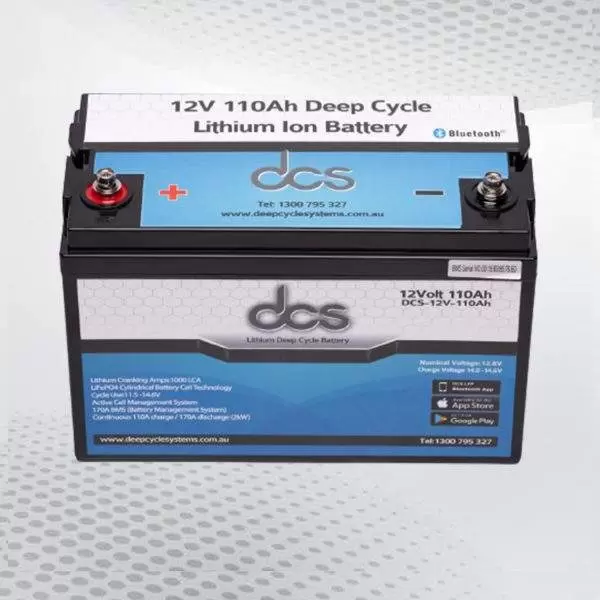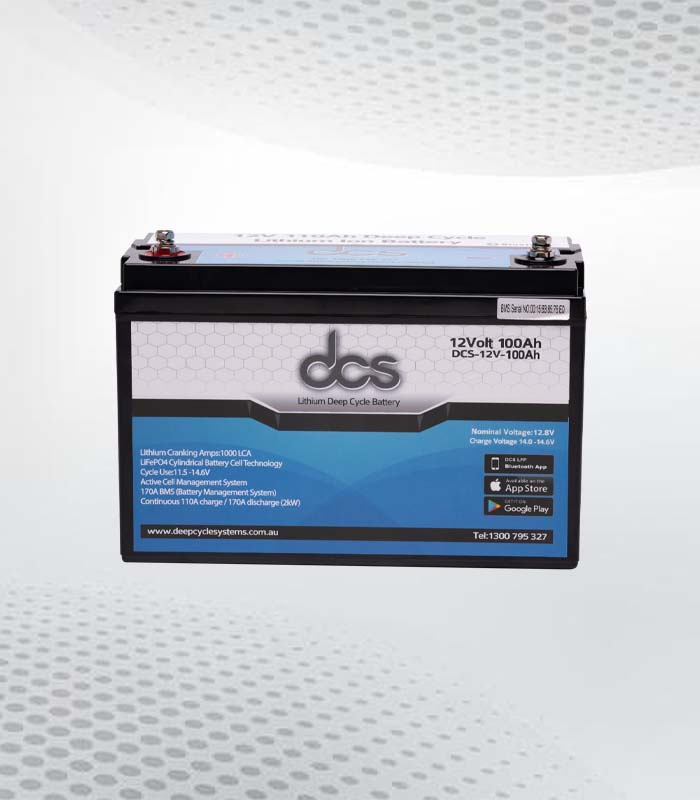As a lithium battery owner, you are responsible for ensuring the safety of yourself, your family, and your property. When storing or handling a lithium battery, it is essential to take extra precautions. To help you with this, we have compiled eight essential tips on properly storing and handling your 100ah lithium battery. With these tips, you can ensure that your battery stays in top condition and you stay safe! Read on to learn more.
Understanding the Risks of Mishandling Lithium Batteries
Lithium batteries have become increasingly popular due to their high energy density and long lifespan. However, it is crucial to understand the risks associated with mishandling these batteries. One of the main risks is the potential for thermal runaway, which can lead to fires and explosions. This occurs when the battery becomes overcharged, overheated, or physically damaged, causing a chain reaction of uncontrollable heat generation within the battery.
Another risk is short-circuiting, which can happen if the battery terminals come into contact with metal objects or if the battery is damaged. This can result in high heat generation and potentially lead to a fire. Additionally, if a lithium battery is stored in an area with high humidity or extreme temperatures, it can cause corrosion and internal damage to the battery.
Safety Precautions before Storing Your Battery
Before you store your 100-ah lithium battery, it is important to take certain safety precautions to minimize the risk of accidents or damage. Firstly, always ensure that the battery is fully discharged before storing it. This will help prevent the battery from overcharging during storage, which can lead to thermal runaway. Use a battery tester or voltage meter to confirm that the battery voltage is below a safe level.
Secondly, remove any accessories or devices connected to the battery. This includes any wiring, connectors, or other attachments. Storing the battery without external components will reduce the risk of accidental short-circuiting.
Additionally, storing the battery in a cool, dry place is advisable. Avoid areas with high humidity or extreme temperatures, which can lead to corrosion and internal damage. Ideally, the storage area should be well-ventilated to prevent the buildup of flammable gases. Lastly, always follow the manufacturer’s guidelines for storing your specific lithium battery model. They may have additional safety recommendations or specifications that you need to follow.
Best Practices for Storing Your Lithium Battery
When storing your 100-ah lithium battery, there are a few best practices to remember. First and foremost, storing your battery in a well-ventilated location and away from flammable materials is crucial. This will help minimize the risk of any potential accidents or fires. Additionally, storing the battery in a secure and stable position is important, as any movement or tipping could lead to damage or leaks. Another important consideration is to avoid stacking batteries on each other, as this can put unnecessary pressure on the batteries and increase the risk of damage. Instead, store them in a single layer or use dedicated storage containers or racks designed for lithium batteries.
Keeping your battery stored at room temperature is also recommended, as extremely hot or cold temperatures can negatively affect its performance and lifespan. Finally, always regularly inspect your battery for any signs of damage or deterioration and replace it if necessary.
Choosing the Right Storage Container for Your Battery
Choosing the right storage container for your 100-ah lithium battery is crucial for maintaining its safety and longevity. When selecting a container, it is important to consider a few key factors. Firstly, opt for a container specifically designed for storing lithium batteries. These containers are often made from fire-resistant materials and have built-in safety features such as ventilation systems to prevent the buildup of flammable gases. They also have sturdy construction to protect the battery from damage.
Secondly, choose a container that is the appropriate size for your battery. It should provide enough space for the battery without leaving excess room for movement, which can increase the risk of damage. The container should also have a secure closure mechanism to prevent accidental openings.
Additionally, consider a container with insulation properties to protect the battery from extreme temperatures. Some containers come with thermal insulation, which can help regulate the temperature inside and prevent damage to the battery. Lastly, keep the container in a cool, dry, and well-ventilated area. This will help maintain the battery’s optimal performance and prevent the accumulation of moisture or corrosive substances.
Avoiding Temperature Extremes during Storage
To ensure the longevity and performance of your 100-ah lithium battery, it is important to avoid exposing it to temperature extremes during storage. Extreme heat or cold can harm the battery’s chemistry and overall lifespan.
Firstly, never store your lithium battery in direct sunlight or an area with high temperatures. Heat can accelerate the battery’s chemical reactions and lead to faster degradation. Instead, choose a cool, dry place away from direct sunlight or heat sources.
Similarly, extreme cold can also negatively impact the battery’s performance. If the battery gets too cold, its internal resistance can increase, reducing its capacity and ability to hold a charge. Avoid storing your battery in freezing temperatures, especially for long periods. Consider insulating the storage container or using thermal insulation materials to protect your battery from temperature extremes. This can help regulate the internal temperature and prevent any damage caused by extreme heat or cold.
Maintaining Proper Voltage Levels in Lithium Battery 12v 100ah
Maintaining proper voltage levels in your lithium battery 12v 100ah is essential for its performance and longevity. A consistently undercharged or overcharged battery can experience capacity loss, reduced lifespan, and even potential damage. To ensure that your battery stays at optimal voltage levels, follow these tips:
- Use a reliable battery charger: Invest in a quality charger designed specifically for lithium batteries. Avoid using chargers incompatible with lithium batteries, as they may not provide the appropriate voltage or current.
- Avoid deep discharging: Lithium batteries should not be discharged below their recommended voltage level. Deep discharging can lead to irreversible damage and reduce the battery’s overall capacity. Monitor the battery voltage and recharge it before it reaches the recommended minimum voltage.
- Regularly charge your battery: Even if you are not using it regularly, it is important to prevent self-discharge and voltage drop periodically. A battery that remains discharged for extended periods can suffer from capacity loss.
- Store your battery at an optimal voltage level: If you are storing it for an extended period, ensure it is at a suitable voltage level. Consult the manufacturer’s guidelines for the recommended storage voltage. Using a battery maintainer or charger with a storage mode can help maintain the battery’s voltage during storage.
- Check the voltage regularly: Periodically check the voltage of your battery using a battery tester or voltage meter. This will allow you to identify potential issues early on and take appropriate actions to maintain the voltage levels.
Keeping Your Battery Clean and Dry
To ensure the optimal performance and longevity of your 100-ah lithium battery, it is important to keep it clean and dry. A battery that is contaminated or exposed to moisture can experience corrosion and internal damage, decreasing its capacity and overall performance. Here are some tips to help you keep your battery clean and dry:
- Inspect your battery for any signs of dirt, dust, or other If you notice any buildup, gently clean it using a soft, dry cloth. Please avoid using liquids or abrasive materials, which can damage the battery.
- Pay attention to the battery’s terminals. These are the metal connections on the battery with the attached wires or connectors. Ensure that they are clean and free from any corrosion or oxidation. If you notice any buildup, gently clean the terminals using a battery terminal cleaner or a mixture of baking soda and water. Rinse the terminals thoroughly and dry them before reconnecting any accessories.
- Store your battery in a clean and dry environment. Avoid areas with high humidity or moisture, as they can cause damage to the battery. If necessary, use a dehumidifier or silica gel packets to control the moisture level in the storage area.
- If you need to transport or handle your battery, use a protective cover or case to shield it from dirt and moisture. This will help prevent contaminants from contacting the battery and causing damage.
Regularly Checking and Testing Your Lithium Battery
Regularly checking and testing your 100-ah lithium battery is crucial for ensuring its performance and identifying potential issues. Here are some key steps to take:
- Visual inspection: Regularly examine the battery for any signs of physical damage, such as swelling, leaking, or bulging. If you notice any abnormalities, it may indicate a problem with the battery.
- Capacity testing: Use a battery capacity tester to determine the remaining capacity of your lithium battery. This will help you assess its overall health and identify any degradation or loss of capacity.
- Voltage testing: Use a reliable battery tester or voltage meter to measure the voltage of your battery. Compare the reading with the manufacturer’s specifications to ensure it is within the recommended range.
- Cycle testing: Perform regular charge-discharge cycles on your battery to evaluate its performance and capacity. This will help you determine if the battery is still functioning optimally or requires maintenance or replacement.
- Consult the manufacturer: Refer to the manufacturer’s guidelines for any specific testing or maintenance procedures recommended for your lithium battery model.
FAQs
1. Can I store my lithium battery in extreme temperatures?
It is not recommended to store your lithium battery in extreme temperatures. High temperatures can accelerate the battery’s chemical reactions and lead to faster degradation, while extremely cold temperatures can increase internal resistance and reduce capacity. It is best to store the battery in a cool, dry place away from direct sunlight, heat sources, or freezing temperatures.
2. Can I stack multiple lithium batteries on top of each other?
No, it is not advisable to stack lithium batteries on top of each other. Stacking them can put unnecessary pressure on the batteries and increase the risk of damage or leaks. It is recommended to store them in a single layer or use dedicated storage containers or racks designed for lithium batteries.
3. How often should I check the voltage of my lithium battery?
It is recommended to periodically check the voltage of your lithium battery using a battery tester or voltage meter. This will allow you to identify potential issues early on and take appropriate actions to maintain the voltage levels. The frequency of checking will depend on how often you use the battery, but checking every few months is a good general guideline.
Conclusion
In conclusion, properly handling and storing your 100-ah lithium battery is crucial for your safety and the longevity of your battery. By understanding the risks of mishandling lithium batteries and following the safety precautions and best practices outlined in this article, you can minimize the risk of accidents and ensure optimal performance.



